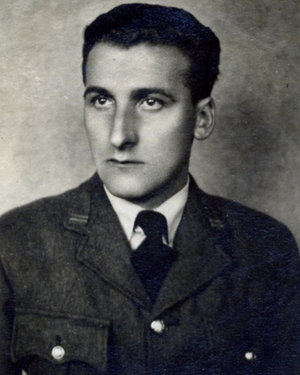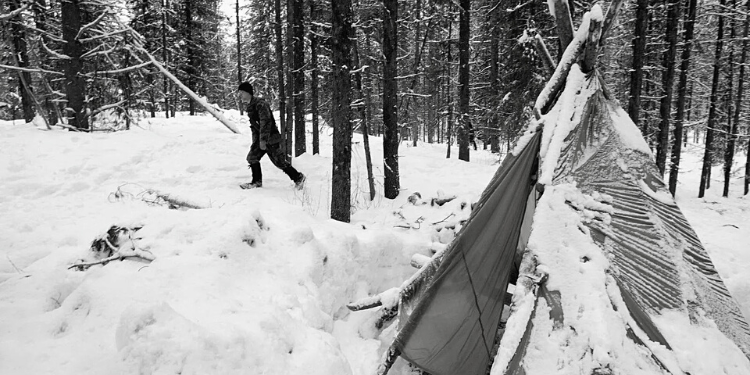Editor’s Note: Extracts of Dad’s Story (Eugene Telesor Maciejewski 1916 – 1998) from “A Lost Heritage” by D. Mariana Robinson ©
My father’s story is one of trial, fear, starvation, survival techniques, and eventual salvation in another country. He was born in Poznan, Poland on 5th January 1916 but I know little of his formative years.
I visited his family home in 2003, and saw an oil painting on the wall, riddled with bullet holes. This painting was a reminder of the German invasion of Poznan on the 1st of September 1939. That day, my father had been working outside Poznan but walking home that evening, he saw a commotion with army trucks in town and heard gunshots and screams.
Germany had invaded Poland. He heard machine gun fire, rifles, and shouting. Terrified, he hid in fields until nightfall – never to return to his family again until 1974. I cannot imagine what went through his mind during that invasion.
Dad kept under cover and skillfully found his way to the Polish Army barracks, to join up, eat and have a bed, before working out what he could do. After a short amount of training with the Polish Army, he was eventually captured by Germans whilst out on maneuvers and taken prisoner.
World War II started with a pact between Russia and Germany, The Molotov-Ribbentrop Pact, signed on 23 August 1939. As a prisoner of war, my father spent weeks being marched eastwards toward Russia. He soon realized they were being marched to their deaths.
Related: 5 Survival Foods Made By Soldiers During WW2 On The Normandy Front
It was a short-lived pact, so by Spring 1940, after surviving an intense winter, dad was handed over by Germany to the Russians. They were somewhere in the deep forests of the Polish/Ukraine border. Many columns of Polish soldiers in different areas of South East Poland, were massacred in the Katyn Forest.
 By June 1941, thousands of Polish prisoners were also being moved towards Russia before dying from fatigue or being shot.
By June 1941, thousands of Polish prisoners were also being moved towards Russia before dying from fatigue or being shot.
Poznan was annexed into Germany’s Third Reich, and Poznan Castle became a Nazi Headquarters, whilst Poznan’s citizens were either murdered or taken prisoners. This was genocide of the Poles on a massive scale.
It is hard for us to comprehend the fear and trauma of war, at age 23, for we’ve grown up in an era of peace and prosperity in Europe.
To have the wit to find sanctuary with the Polish Army rather than try and go home must have left dad with a terrible fear, isolation, unbearable loss and possibly a feeling of betrayal of his family and loved ones, the fate of whom, he did not know.
He was marched through the area known today as Belarus, and decided he had to escape – if caught, he’d be shot and if he stayed with the column of men, he’d also be shot or die a slow death…
